These aren’t episodes of Futurama which are hard in the sense of ‘tough’, or ‘tumescent’, but in the sense of how closely a work of science fiction adheres to actual science. The harder it is, the more based in scientific fact it is – and naturally you have the counterpoint of soft science fiction, the kind of sci-fi tales which blithely incorporate ghosts, pixies, and wishes coming true.
Futurama, already a cartoon, naturally tends toward the soft end of the spectrum. But we must remember that, as with its spiritual elder brother The Simpsons, the writing staff are mostly giant nerds, and STEM nerds at that, who practically salivate at an opportunity to show they’ve done the research and know what they’re talking about. The first episode subtly but accurately threw in the detail that December 31st, 2999 will be a Tuesday, which should give you some idea of the standards in play.
Most helpfully of all, despite taking place in the 31st century, Futurama is itself helplessly, irrevocably tethered to our time and to our shared cultural assumptions. For that reason, most of their technology is at least recognisable to us, which helps to draw the kind of tenuous comparisons you’re about to enjoy:
1. A Fishful Of Dollars (Season 1, Episode 6)
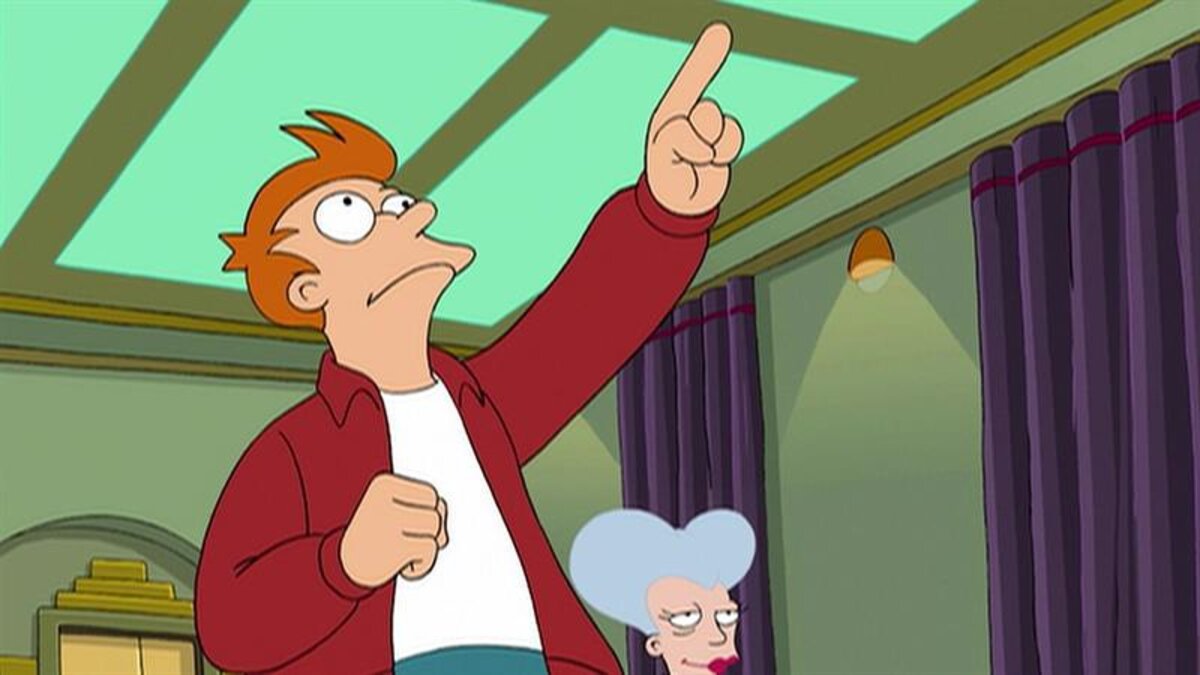
The fact that ostensible leading man Fry is from the 20th century, in all honesty, didn’t affect Futurama that much. Per the writers, the plan was for him to function as a fish-out-of-water, but he ended up acclimatising to the 3000s far faster than they expected.
But when Fry checked out his old bank account, through the magic of compound interest, the 93 cents he had in there had mushroomed into 4.3 billion dollars – and yes, the maths on that does check out (they rounded up to 4.3 billion, but at that point, who’s counting?). This presumably left the bank kicking themselves that they’d expected their customers to die long before anything like that happened.
A killjoy might say that while no, banks don’t expect their customers to be cryogenically frozen for a thousand years, most will close accounts that are left inactive for anything like that long. And yes, alright, but the numbers were right, give them that at least.
2. A Flight To Remember (Season 1, Episode 10)
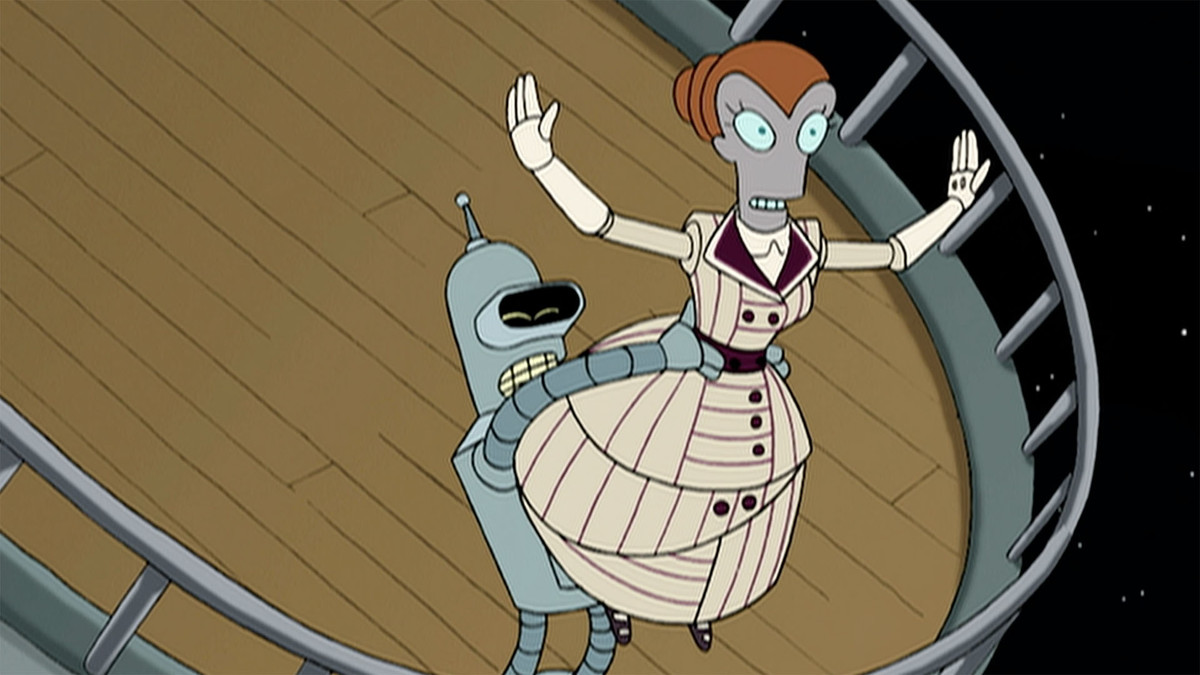
This rather shameless Titanic pastiche is, if anything, too obvious an example of something that could really happen. With passenger space travel already a thing, it’s not a question of if, but rather when a voyage goes badly wrong, be it running into a comet (“the icebergs of the sky”) or being sucked into a black hole.
There are, sadly, real-world examples of spaceship disasters already – and that’s with the best and brightest minds available specifically trying to ensure that doesn’t happen. When space travel becomes as conveyor-belt as a budget flight to the Azores, the odds are likely to just get worse. And the episode being a Titanic spoof inevitably brings to mind the ill-fated Titan submersible, proof positive that even people going into incredibly hostile environments are prone to doing it on the cheap.
3. Fry And The Slurm Factory (Season 1, Episode 13)

Futurama’s take on Charlie And The Chocolate Factory is among the strongest of the many, many pastiches of Dahl’s book out there. And it’s already on more realistic ground than the original, since the sweet treats from down the Slurm Factory don’t turn you into a massive blueberry.
Despite the giant talking worms and the grunka-lunkas, fundamentally, it’s a story about humanity – about us – getting all too fond of an addictive and probably unhealthy substance. It’s sci-fi in its trappings, but this is a tale that’s been played out again and again through history. From chocolate itself all the way up to opium, we want what we want, and if these substances, like Slurm, were produced in “a colossal worm heinie” it’s not going to put everyone off.
The episode is all too well aware of this, with Slurm clearly being a no-brands-were-harmed stand-in for certain real, caffeinated, red-logoed soft drinks that once contained cocaine. Fry knocks the nail on the head when he reminisces “back in high school, I would drink a hundred cans of cola week, right up until my third heart attack”.
4. Godfellas (Season 3, Episode 20)

In characteristically blunt fashion, Bender summarises the episode nicely in the final thirty seconds – “First I was God, then I met God!”. Yes, having played deity to some tiny creatures that land on his chest (and seen them wipe themselves out), Bender then drifts into the orbit of some kind of friendly cosmic superintelligence.
While Bender does convince the entity that it may actually be “the remains of a computerised space probe that collided with God” – it is clearly not God. It’s not omniscient, and for all its claims of using a light touch, doesn’t actually interact with anything in a God-grade fashion. But the idea that an AI lost in space and possibly gone a bit mad could take a decent stab as presenting itself as God – or even convince itself it really is God, as so many maniacs through history have done – seems more and more plausible every day.
The Godliest the entity gets is directing Bender back to Earth, and this only after Fry’s provided a pointer, with a souped-up telescope-cum-microphone. So yes, the entity isn’t God, but it is benevolent. And while the primitive AIs of today, your ChatGPTs and so on, may not be benevolent by nature, they certainly understand the concept and can have a good go at mimicking it.
5. I Dated A Robot (Season 3, Episode 15)
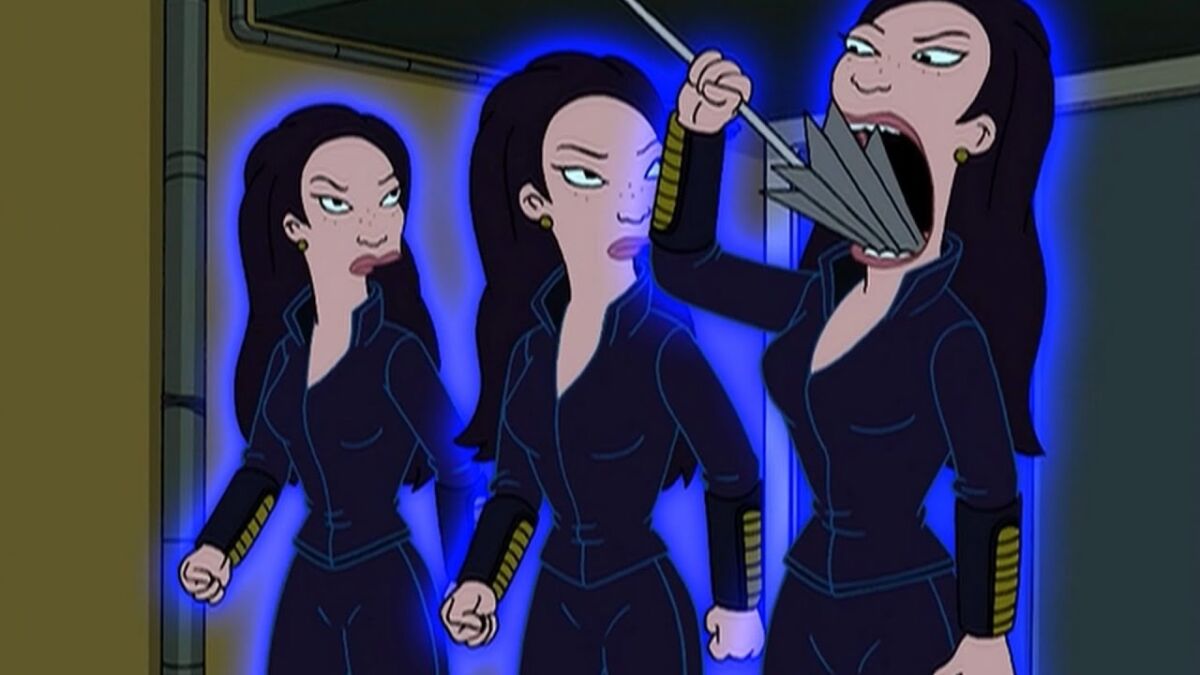
The public information film where humanity dies out because it’s spent all its time banging sexy robots might be ludicrous and bombastic, but the whole business of autoerotica, with robots or otherwise, usually figures heavily in what Japan calls the hikkikomori – people who have withdrawn from society altogether. And for all that things like the Realdoll are usually thought of as some curiosity, there are real people out there buying those.
Likewise, Fry’s sex robot is programmed with a pirated version of Lucy Liu’s personality. At the time this was just a fairly lazy joke about OG music piracy website Napster, but it’s an eerie prediction of the ‘parasocial relationship’ people are reckoned to have with Twitch streamers and the like, which is often clearly a sexual thing.
Here, again, we are having to grant them a lot before getting into the business of it being remotely realistic, in this case the near-magical transfer of someone’s personality into a robot. ‘I Dated A Robot’, at least, doesn’t make this process perfect, with Fry’s Liu-bot regaling him with sweet nothings like “I love you more than the moon and the stars and the poetic image number 37 not found”.
6. Obsoletely Fabulous (Season 4, Episode 14)

Here we’re once more venturing into more speculative territory – for any of this to work, we have to presuppose the existence of actual, full-on, aware-of-itself sapient AI. Futurama, with its large population of robots, has already done this, and it’s been a sci-fi staple for pretty much as long as there’s been sci-fi, so let’s just gloss over that starting point, shall we? Cool.
But having accepted that, then we can grapple with the societal issues in play for Futurama’s robots – most notably here, what do they do once they become (say it quietly) older, outdated models? Under Bender’s tutelage, the answer is pretty clear: immediate, violent revenge. It’s essentially the same story as the Luddites, former textile workers who went around smashing up the more-advanced machinery that had replaced their jobs.
Futurama touched on a similar idea in ‘Bending In The Wind’, where Bender got badly damaged and took the gentler route of becoming a folk singer, explicitly looking to “raise awareness about broken robots”. However, any exploration of the wider socio-economic implications of this went out the window when he inexplicably recovered, and revealed this during his big finale with Beck.
7. Parasites Lost (Season 3, Episode 2)
Becoming infected with parasites that cause a massive change in personality, and even physiology, is something we have many real-world examples of – albeit mainly in animals. Neither is the delivery vector through which Fry is infected (an egg salad sandwich, bought from the singularly skeevy source of a vending machine in a truck stop men’s room) particularly implausible.
Probably the best known example of such parasites is the cordyceps fungus, which causes ants to abandon their nests and then sprouts in alarming fashion from their heads. During the zombie apocalypse craze of the 2000s, it was often cited as a potential way zombies could come to be in reality, and more recently enjoyed a star-making role causing just such an apocalypse in The Last Of Us.
Futurama’s parasitic worms aren’t nearly so hardcore, and arguably aren’t so much parasitic as symbiotic, focusing on making their host fitter and cleverer (and, inevitably, sexier) from the inside. This turns out to be their undoing, and Fry ultimately ousts them over his concerns of whether Leela’s attracted to him, or just what they’ve done to him.
8. The Cyber House Rules (Season 3, Episode 9)
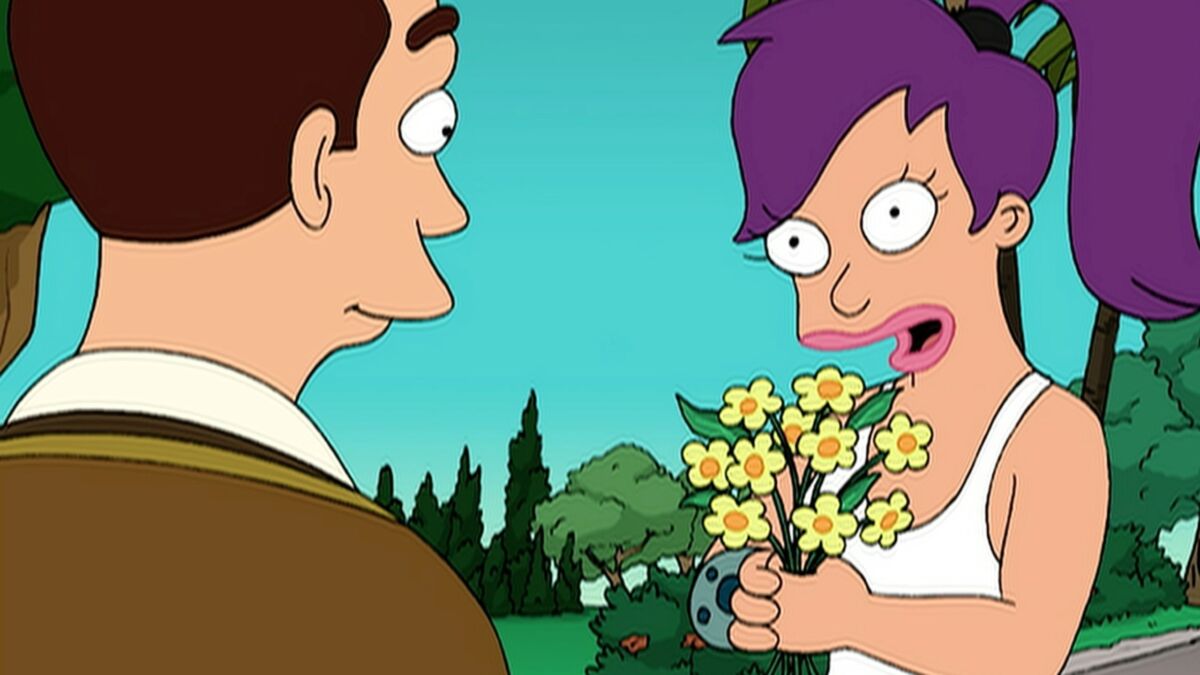
True to form, this example of Futurama’s harder sci-fi is an episode that isn’t even particularly futuristic. The wackiest technology on show is simple cosmetic surgery, giving cyclops Leela the extra eye she’s always felt somewhat displaced without.
Actually transplanting an entire eye is still beyond medical science, but that seems to be the case in Futurama’s world too – what Leela actually receives is a prosthetic that can’t see. And, more alarmingly, needs to have the pupil drawn on with a marker pen. Really, the most sci-fi it gets is that her single functional eye is somehow squashed over to one side.
In a nastier way, there’s also the subplot of Bender adopting a gaggle of orphans entirely for the government stipends attached. But for the fact it’s a robot doing it, that too is likely already happening somewhere.
9. The Prisoner Of Benda (Season 6, Episode 10)

Plots where someone dresses up as/is mistaken for someone else, and it’s very very funny, go back at least to Shakespeare himself. Here it’s granted the added frisson that, thanks to the Professor’s latest kooky invention, they can actually transfer their mind into someone else’s body, and all sorts of whimsical misunderstandings ensue.
So, to state the obvious, the device that allows minds to be swapped between bodies is based on no known technology. However, if you can suspend your disbelief that far – and also assume no pair of bodies can switch minds more than once – then the logic that everyone’s minds can get back to the right bodies with the help of no more than two more people (in this case, Ethan ‘Bubblegum’ Tate and ‘Sweet’ Clyde Dixon of the Harlem Globetrotters) is completely sound.
Writer Ken Keeler claims that the mathematical proof he wrote to demonstrate this is too speculative to truly be called a theorem of its own. But Keeler does himself a disservice, since the very second the mind-body-swap machine hits the shelves, his proof will quickly become part of the everyday lexicon. There’ll be special words for your two go-to friends, I guarantee it.
10. When Aliens Attack (Season 1, Episode 12)
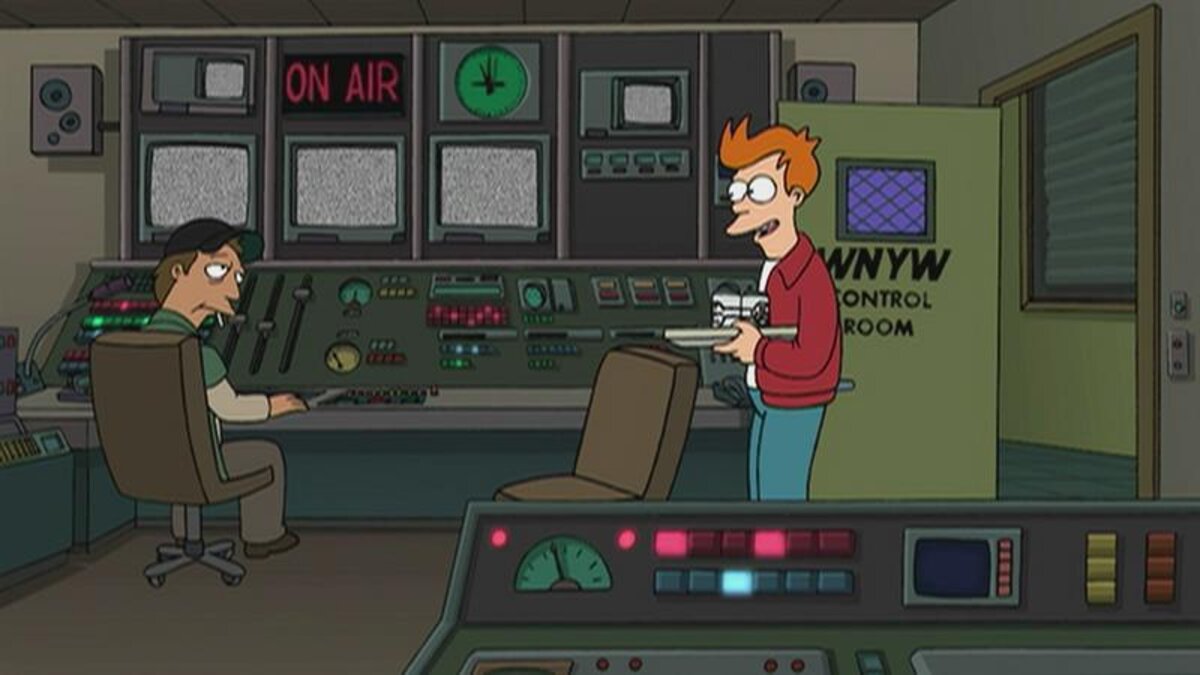
The old joke is that if and when alien lifeforms stumble across the Pioneer Plaque, they will quite naturally assume we’re a planet of taciturn yet amiable naturists. All told, there’s worse things in life to be.
But what if the cultural artefact to make first contact wasn’t the precision-engineered Pioneer Plaque? What if it was a trashy late-90s TV show, in this case Futurama’s thinly disguised version of Ally McBeal, Single Female Lawyer (“fighting for her client, wearing sexy mini-skirts and being self-reliant”)? And what if the aliens got really pissed off when an episode cut out halfway through?
Fry having spilled beer on the mixing desk, the transmission makes it to Omicron Persei 8, 1000 light years away, 1000 years later, and prompts their wrath (“I demand to know what happened to the plucky lawyer, and her compellingly short garment”). With humanity firing out information in every direction as fast as possible, we should just think ourselves lucky the Omicronians picked up on Ally McBeal rather than someone’s erotic Popeye fanfiction.
READ NEXT: 50 Best Futurama Episodes of All Time
Some of the coverage you find on Cultured Vultures contains affiliate links, which provide us with small commissions based on purchases made from visiting our site. We cover gaming news, movie reviews, wrestling and much more.



